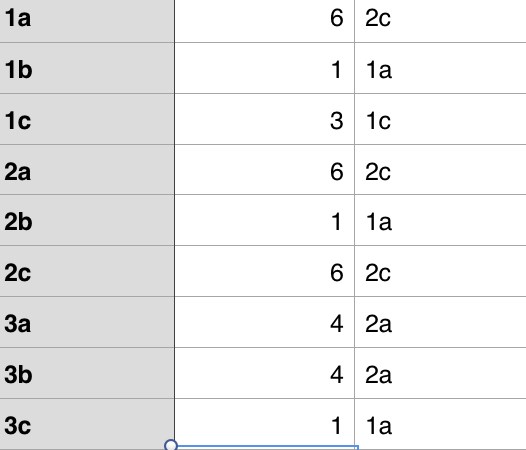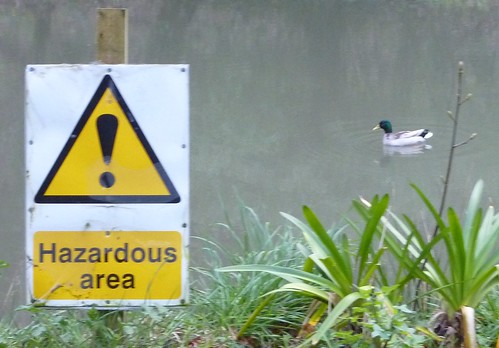Hazardous environments: I like to think of this as being a metaphor for any situation in which one is challenged.
Read MoreSchools’ approach to assessment without Levels
6 Ways to respond to requests for pointless data
 So, there you are, basking in your new-found freedom to report to parents what their children can actually do in Computing and ICT, when the data impresario in your school says they want you to supply the school office with a “Level” for each child. And for good measure, they want you to do that four times a term in order to monitor progress. How should you respond?
So, there you are, basking in your new-found freedom to report to parents what their children can actually do in Computing and ICT, when the data impresario in your school says they want you to supply the school office with a “Level” for each child. And for good measure, they want you to do that four times a term in order to monitor progress. How should you respond?Good riddance to levels in ICT and Computing
 Who’s afraid of life without Levels? Quite a few people if the number of schemes of work and assessment grids being developed that incorporate levels are anything to go by. Working without levels is clearly very hard: it is almost impossible to think, much less talk, about pupils’ progress without mentioning levels at some stage.
Who’s afraid of life without Levels? Quite a few people if the number of schemes of work and assessment grids being developed that incorporate levels are anything to go by. Working without levels is clearly very hard: it is almost impossible to think, much less talk, about pupils’ progress without mentioning levels at some stage.
Yet this is precisely what the government expects.
Subtlety in the ICT Programme of Study
Hazardous Environments
I was working in Jersey last week, and came across this sign.
 OK if you're a duck...I like to think of this as being a metaphor for any situation in which one is challenged. It may be a conference, or it may be a small gathering of friends or colleagues (I use the word 'or' in the Boolean sense). It may be a new assignment, or a new team to manage, or a new boss. It may be a new syllabus, or a new piece of software. It may be a new government initiative. Or it may be a failure to launch a new government initiative.
OK if you're a duck...I like to think of this as being a metaphor for any situation in which one is challenged. It may be a conference, or it may be a small gathering of friends or colleagues (I use the word 'or' in the Boolean sense). It may be a new assignment, or a new team to manage, or a new boss. It may be a new syllabus, or a new piece of software. It may be a new government initiative. Or it may be a failure to launch a new government initiative.
It seems to me that what keeps good educationalists interested, and therefore interesting, is continually venturing into 'hazardous areas'. Where old assumptions and current paradigms no longer work, and long-honed skills lack relevance.
Involvement in educational ICT has its own challenges. There is the obvious one, that of constantly having to learn about, and learn how to use, new applications. But there is a curricular and assessment challenge too, which is more subtle. As new developments make certain things easier to achieve, it becomes untenable to give credit for achieving them, from a skills point of view.
A good example of this is desktop publishing. My first desktop published page took me about an hour and a half to achieve, as I figured out what I had to do. Once 'wizards' and templates had been introduced, by Microsoft Publisher, the same task took little longer than it took to enter the text. What was once a highly-skilled operation suddenly became almost unskilled.
This is reflected in several national ICT curricula I have looked at: as the grade level rises, the skills required rise less quickly. In fact, I would argue that in the English National Curriculum for ICT, there are hardly any more skills to learn beyond Level 4. You can achieve Level 8 with not much more than a Level 4 skill set, in my opinion. Why? Because the further up the ladder you go, the more important become factors like feedback (and therefore iteration) and systematic (strategic) thinking.
In this context, talk of digital natives or cool tools is not especially helpful. The real issue is that one must be continually finding new challenges for youngsters. Challenges which:
- Make use of their current technical skills but nudge them towards the next level;
- Are relevant to them personally in some way;
- Are problems to be solved;
- Excite both them and their teachers;
- Are not easy; ...
- ... Yet are not so difficult as to make one want to give up;
- Have many facets;
- Encourage collaboration; ...
- ... And friendly rivalry;
- Cannot be assessed by a tick list.
I often hear people bemoan the fact that ICT lessons are boring, and then proceed to blame the National Curriculum. I think the National Curriculum is broad and flexible enough to cope with modern demands -- where people actually make them.
That to me is the real problem: that for all sorts of understandable reasons many teachers do not make real demands of their students. They provide them with intellectually safe, and therefore boring, environments.
They should be providing intellectually hazardous ones.
